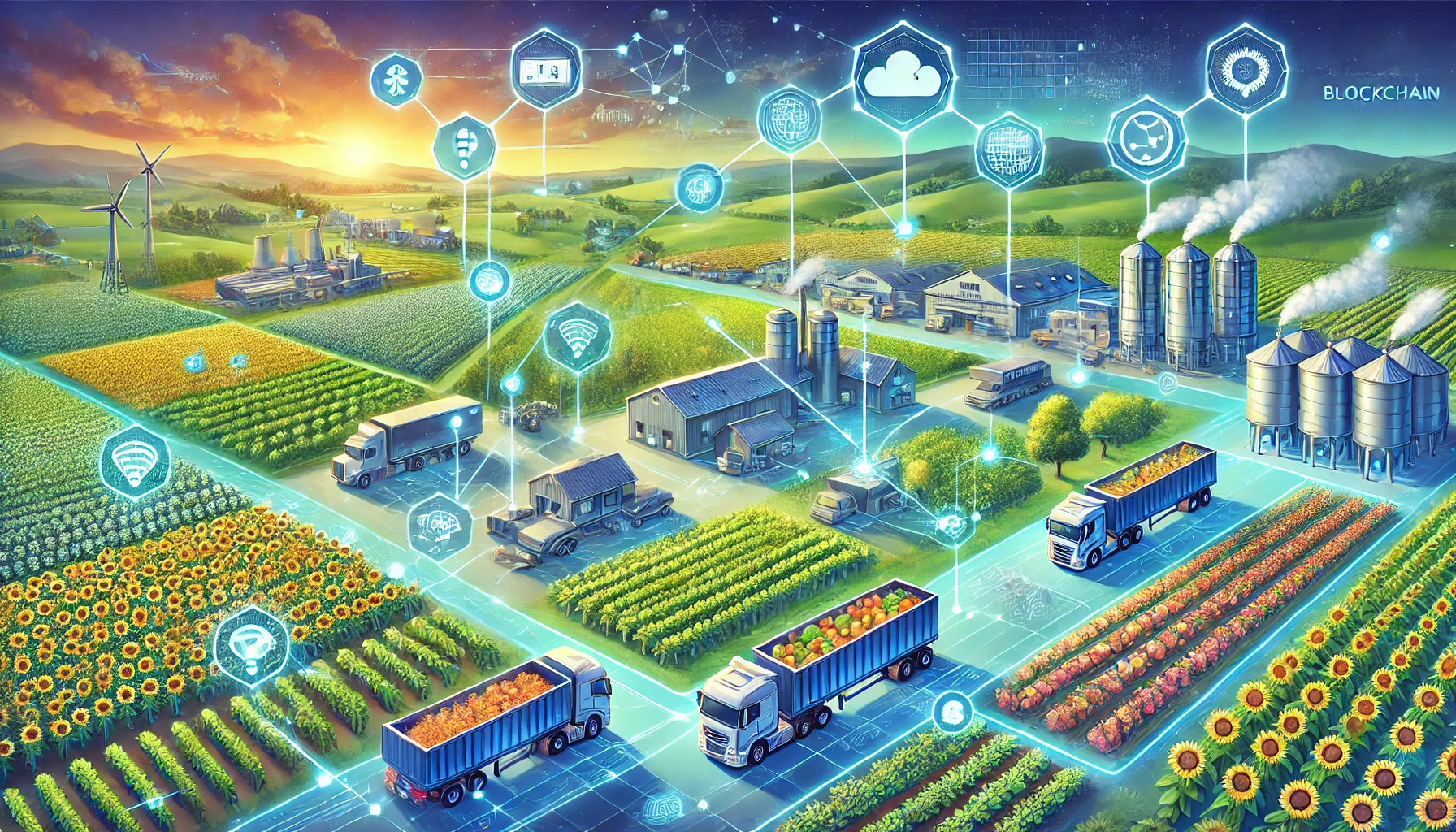Transforming Food Safety: How Blockchain Overcomes Barriers in the Food Supply Chain
Research shows that organizational, strategic, and social barriers have hindered Industry 4.0 in the food supply chain, but blockchain technology offers a promising solution for enhanced traceability and safety. Overcoming challenges through government incentives and stakeholder collaboration can create a more transparent and sustainable food system.

In the wake of a global surge in food demand and increasingly complex supply chains, ensuring food safety has become a critical challenge. The recent study by Keru Duan, Helen Onyeaka, Gu Pang, and Zeyuan Meng, published in the Journal of Agriculture and Food Research, delves into how blockchain technology can revolutionize food safety and supply chain monitoring. Blockchain, known for its transparency and traceability, offers a promising solution to longstanding food safety issues by enhancing accountability and reducing fraud.
Transforming Food Safety with Blockchain
The global food supply chain is a vast and intricate network, with food products often traveling long distances before reaching consumers. This complexity makes it difficult to manage food safety and traceability. Traditional methods of tracking and auditing the food chain are inadequate, often failing to address fraud and inefficiencies. Blockchain technology, with its decentralized and immutable ledger, provides a way to securely record all transactions and ensure that data is transparent and unalterable. The study highlights several advantages of blockchain in the food supply chain, including enhanced traceability, which helps in quickly identifying the source of food contamination. This capability is crucial during foodborne illness outbreaks, as it allows for swift action to prevent further spread. Moreover, blockchain's transparency can help build consumer trust by verifying the authenticity of products labeled as organic or fair trade.
Overcoming Challenges to Blockchain Integration
However, the integration of blockchain in food safety is not without challenges. Key obstacles include the high initial costs of implementation, regulatory hurdles, and interoperability issues with existing systems. The study suggests that government intervention, including financial incentives and pilot programs, could play a vital role in overcoming these barriers. Standardization of blockchain platforms and regulatory frameworks is also essential to ensure seamless data exchange and compliance with food safety standards. The researchers also discuss the potential of blockchain to support intelligent agriculture. By enabling real-time data sharing among various stakeholders, blockchain can aid in decision-making processes, helping farmers optimize resource use and enhance crop production. This technology can also improve the efficiency of food supply chains, from farm to table, by automating processes and reducing costs associated with manual interventions.
Strategies for Successful Blockchain Adoption
The study proposes several strategies to facilitate the adoption of blockchain technology. These include enhancing information sharing among supply chain partners, improving trust management, and updating technological infrastructure. Additionally, the study emphasizes the need for a collaborative approach, involving all stakeholders—producers, retailers, consumers, and technologists—to develop common goals and understand the technology's limitations. Blockchain's role in food safety extends beyond traceability. It offers a framework for real-time surveillance of food products, ensuring that safety issues are promptly detected and addressed. For instance, innovative sensor arrays and deep learning systems can monitor food freshness, providing consumers with real-time information about the quality of their food.
Future Research Directions in Blockchain and Food Safety
Looking ahead, the study calls for further research into the integration of blockchain with other emerging technologies, such as the Internet of Things (IoT), artificial intelligence (AI), and big data analytics. These technologies can complement blockchain, enhancing its effectiveness in ensuring food safety and quality. Additionally, the environmental and social impacts of blockchain technology need to be explored, particularly in the context of developing nations. The study also identifies ten notable obstacles to the adoption of blockchain technology using a comprehensive review of literature and insights from experts. These obstacles were further classified into two groups, namely influential and influenced, using the DEMATEL technique. The outcomes of this research revealed that the barriers in the ‘influential group’ category demand heightened attention from supply chain partners to address them effectively. The key barriers in the influential category include ‘deficiency in information sharing,’ ‘challenges in trust management,’ and ‘absence of updated technologies,’ necessitating immediate action from stakeholders in the supply chain seeking to incorporate blockchain technology. These discoveries play a pivotal role in enhancing the decision-making processes of managers and the digital strategies related to blockchain within enterprises, shedding light on the optimal approaches to implementing this technology.
The Path Forward for Blockchain in Food Safety
Research indicates that organizational, strategic, and social factors have significantly hindered the implementation of Industry 4.0 in the food supply chain, with a negative impact exceeding 50%. Key barriers include inadequate senior management perception of digitization and reluctance to adopt sustainable practices. Effective solutions require strong top management commitment and government incentives. Blockchain technology, with its decentralized and transparent framework, presents a promising solution for enhancing food safety through improved traceability. Despite challenges such as interoperability and regulatory hurdles, strategies like support programs, financial grants, and standardization efforts can facilitate blockchain adoption. Collaboration among manufacturers, retailers, consumers, and regulatory institutions is crucial to address food safety concerns and build consumer trust. By embracing blockchain, stakeholders can create a more transparent and sustainable food supply chain, ensuring better safety and quality for future generations.
- FIRST PUBLISHED IN:
- Devdiscourse










